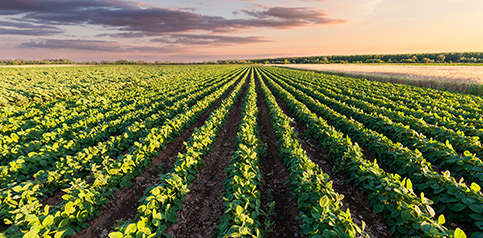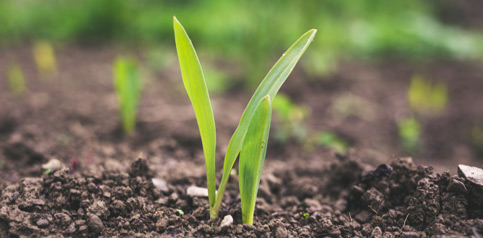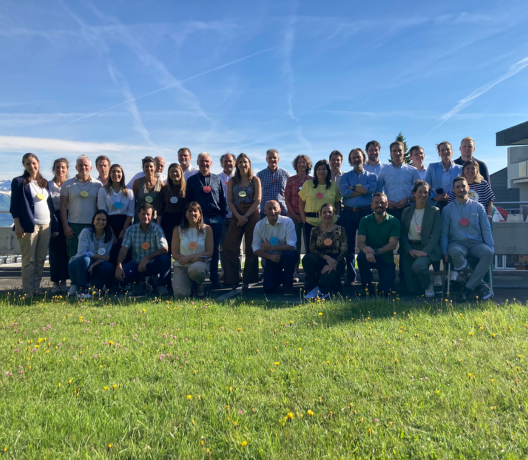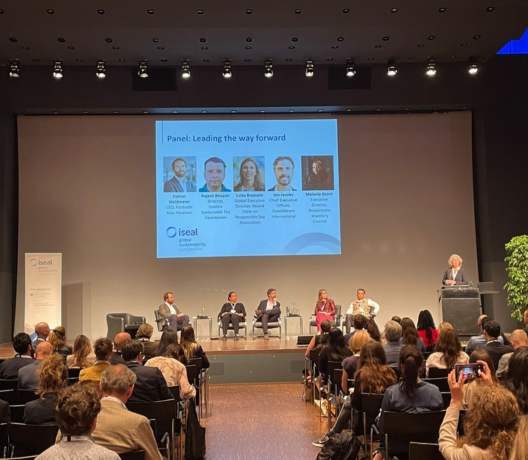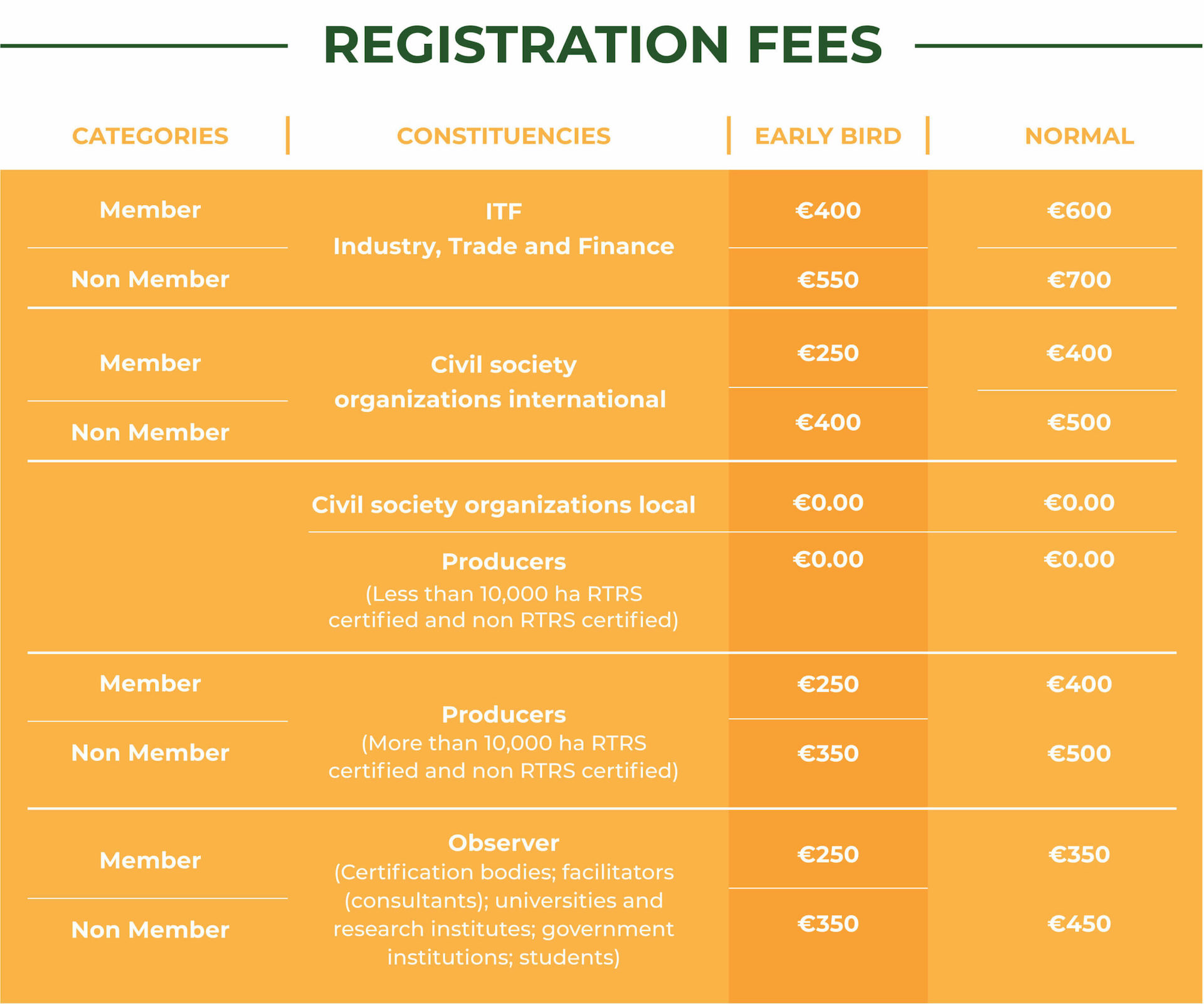GIZ / CLI / RTRS meeting seeks to promote multi-stakeholder work on behalf of sustainable soy in the Itaqui Corridor
The objective of the meeting was to continue and maximise the results of the “Sustainable soy dialogues for the Itaqui Corridor” initiative; three virtual meetings and two in-person meetings were held in the last two years, within the scope of the Memorandum of Understanding (MoU) that has united the three organisations since 2022.
On February 20 and 21, in São Paulo, Brazil, the work teams from Deutsche Gesellschaft für Internationale Zusammenarbeit – (the German International Cooperation Agency – GIZ), Corredor Logística e Infraestrutura (CLI) and the Round Table on Responsible Soy (RTRS) met to discuss the progress and results of the “Sustainable soy dialogues for the Itaqui Corridor” initiative, led jointly by the three organisations over the last two years.
During the GIZ, CLI and RTRS workday, the contributions and feedback from participants of events held in 2022 and 2023 were summarised, which then led to the establishment of priority objectives and potential actions to be carried out in such areas as technical assistance and sustainability standards, legislation, financial incentives, traceability, social agenda and jurisdictional approach, among others.
As such, the conclusions were meant to culminate in the design of a potential action plan to continue the initiative and lead it to new heights in terms of collaborative and synergistic work, thus consolidating the efforts to promote sustainable production in the Itaqui Corridor.
“I consider this to be a very important meeting within the scope of GIZ Brazil’s AgriChains Project. We started this partnership – involving GIZ, RTRS and CLI – to work together and promote an exchange of experiences and the creation of a network composed of the public and private sectors as well as civil society organisations, by means of the “Sustainable Soy Dialogues for the Itaqui Corridor” initiative,” stated Petra Ascher, Project Director at GIZ. “We are now moving forward to establish a multi-stakeholder alliance for sustainable soy for the Itaqui Corridor. We are very proud of this joint achievement for the benefit of sustainability in the soy chain and across Maranhão,” added Petra.
Hélcio Tokeshi, CEO of CLI, said: “Soy sustainability is a strong and necessary topic, achievable through multiple initiatives. The alliance for sustainable soy for the Itaqui Corridor converges with and further enhances what has already been done, as it becomes an initiative of good practices that all stakeholders in the chain can aspire and adhere to, thereby making the soy chain even more sustainable. The GIZ / RTRS / CLI partnership also endorses the already-established “Sustainable Soy Dialogues for the Itaqui Corridor”, which serves as a tool for building connections, proposes other activities to support all players involved in the production process, and makes the corridor more attractive. We’re happy to be a part of it, and to do it right.”
Luiza Bruscato, Global Executive Director of RTRS, highlighted the importance of these strategic workdays when it comes to celebrating achievements and enhancing the continuity of joint actions: “As a global multi-stakeholder platform, RTRS is proud to promote and be an active part of initiatives that foster multi-stakeholder collaboration with concrete objectives to strengthen sustainable supply chains locally and regionally. In addition to developing our national initiative, with a consolidated task force in Brazil, we celebrate the regional presence of our efforts via active participation in key meetings with GIZ and CLI to develop the 2024-2026 work plan”.
About RTRS – GIZ – CLI cooperation
The MoU between RTRS and GIZ was signed in 2021 and CLI was added a year later. The MoU seeks to promote and expand sustainable agricultural practices in the MATOPI region, strengthen the role of RTRS as a multi-stakeholder platform (in addition to its certification scheme) and promote the “Sustainability and value creation in production chains” project, also known as the Sustainable Chains or AgriChains Brasil.
The AgriChains Brasil programme is a partnership between GIZ’s global AgriChains programme and the Government of Maranhão, with support from Germany’s Federal Ministry for Economic Cooperation and Development (BMZ). The programme aims to eliminate deforestation and protect human rights in the supply chains of agricultural products. It has been operating since 2020.
> For more information about the meeting in November 2023, please check out the main milestones of the event in GIZ, CLI and RTRS form a partnership to promote sustainable territories in Maranhão, Brazil




